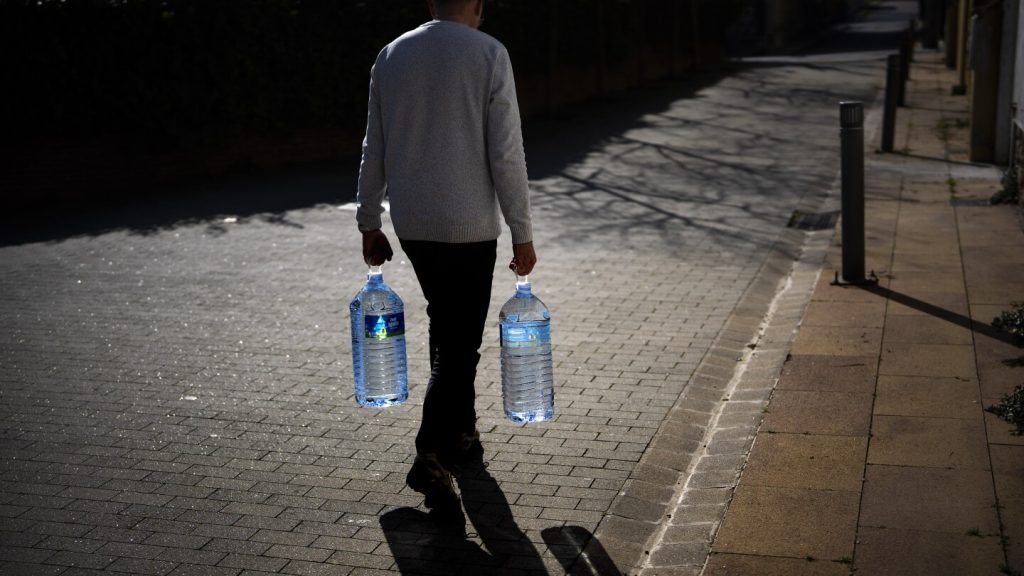The drought in Catalonia, Spain has led to the installation of a floating desalination plant in Barcelona to ensure the city’s drinking water supply. Barcelona already relies on Europe’s largest desalination plant due to below average rainfall over the past three years exacerbated by climate change. The new floating plant is set to start operating in October and will produce 6% of the city’s water consumption, supplementing the existing desalination plant which currently provides almost a quarter of the city’s water. With reservoirs at only 18% of their capacity, Barcelona is facing severe water shortages.
Despite some relief from spring rains, Catalonia is maintaining restrictions put in place under a water emergency declared in February. These restrictions include a daily limit of 200 liters per person for domestic use, as well as significant reductions in water use for crop irrigation, herd animals, and industry. The additional drinking water from the new desalination plant is expected to help postpone the need for stricter water restrictions in the fall. Authorities believe that the floating plant will eliminate the need to bring in extra water supplies by boat, which was previously considered.
David Mascort, head of the regional environmental authority, emphasized the importance of the new desalination plant in ensuring a stable water supply for Barcelona. With the existing infrastructure under strain due to the ongoing drought, the floating plant will provide a much-needed boost to the city’s water resources. Barcelona’s reliance on desalination and water purification systems highlights the challenges posed by the changing climate and the need for sustainable solutions to water scarcity. The city’s 6 million residents, as well as industries and agriculture in the region, will benefit from the additional drinking water provided by the new plant.
The situation in Catalonia underscores the resilient response of authorities to the water crisis, implementing measures to manage water resources effectively and mitigate the impact of the drought on the population. The decision to install a temporary second desalination plant reflects the commitment to ensuring access to safe drinking water for residents of Barcelona and surrounding areas. As water scarcity becomes an increasingly pressing issue worldwide, innovative solutions such as floating desalination plants offer a glimpse of the future of water management in arid regions. By diversifying water sources and investing in sustainable infrastructure, Catalonia is taking proactive steps to address the challenges posed by climate change and ensure the long-term water security of its population.


